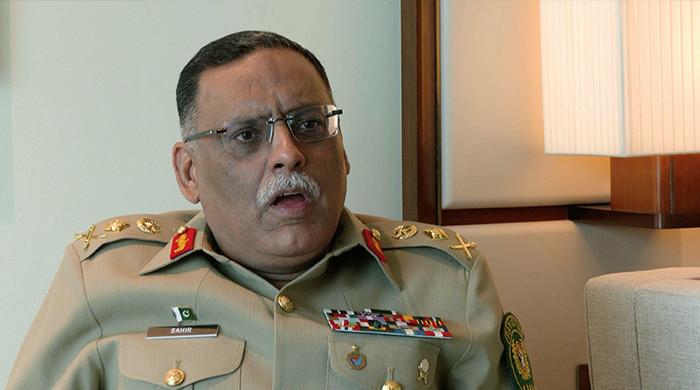Troop Reduction Near Completion Along Pakistan-India Border, Says CJCS
SINGAPORE: Pakistan and India are nearing the completion of a troop drawdown along their shared border, aiming to revert to pre-conflict levels observed before the recent escalation, according to General Sahir Shamshad Mirza, Chairman of the Joint Chiefs of Staff (CJCS). Speaking on Friday, Gen. Mirza cautioned that the preceding crisis has heightened the potential for future escalation between the two nuclear-armed nations.
The clashes, involving fighter aircraft, missiles, unmanned aerial vehicles, and artillery, represented the most intense fighting in decades and spanned four days before a ceasefire was implemented.
The catalyst for the renewed hostilities was an April 22 attack in Indian Illegally Occupied Jammu and Kashmir (IIOJK), resulting in 26 fatalities, predominantly tourists. New Delhi attributed the attack to Islamabad, a claim refuted by Pakistan.
In response, Pakistan’s armed forces initiated a substantial retaliatory operation, designated “Operation Bunyan-um-Marsoos,” targeting various Indian military assets across multiple regions earlier this month.
Authorities characterized the strikes as “precise and proportionate,” executed in response to India’s sustained aggression along the Line of Control (LoC) and within Pakistani territory. New Delhi had asserted that its actions targeted “terrorist targets.”
Pakistan claimed to have downed six Indian fighter jets, including three Rafale, along with numerous drones. The cessation of hostilities occurred on May 10, after at least 87 hours, with a ceasefire agreement facilitated by the United States.
The CJCS noted that both militaries have commenced reducing troop deployments.
“We have nearly returned to the situation before April 22… we are approaching that point, or should have reached it by now,” Gen. Mirza stated. He is the highest-ranking military official to comment publicly since the conflict.
Requests for comment from India’s Ministry of Defence and the office of the Indian Chief of Defence Staff regarding Gen. Mirza’s statements have not been answered immediately.
While attending the Shangri-La Dialogue forum in Singapore, Gen. Mirza emphasized that while the recent conflict did not involve nuclear weapons, the situation was fraught with peril.
“Nothing occurred this time,” he noted. “However, one cannot preclude the possibility of strategic miscalculation at any point, as responses diverge during a crisis.”
He further suggested that the risk of future escalation has grown, as the latest conflict extended beyond the disputed territory – the Himalayan region partially governed by both nations, yet claimed in its entirety. Both countries targeted military sites within their respective mainlands, although neither has acknowledged substantial damage.
Indian Prime Minister Narendra Modi had previously cautioned Pakistan that New Delhi would again target “terrorist havens” across the border should further attacks occur on Indian soil.
The two nations have engaged in three major wars, two concerning the Kashmir dispute, along with numerous armed clashes since their independence from British colonial India in 1947.
India accuses Pakistan of backing an insurgency in IIOJK that began in 1989 and has caused tens of thousands of deaths. Islamabad maintains that it only provides moral, political, and diplomatic support to Kashmiris seeking self-determination.
“This [conflict] lowers the threshold between two contiguous nuclear powers… in the future, it will not be confined to the disputed territory. It will extend to all of India and all of Pakistan,” Gen. Mirza asserted. “This constitutes a highly dangerous trend.”
Reports indicate that the rapid escalation of hostilities was curtailed, partly due to behind-the-scenes diplomatic efforts involving the US, India, and Pakistan, with Washington playing a pivotal role in brokering peace. India has refuted any third-party involvement in the ceasefire, maintaining that any engagement between Pakistan and India must occur bilaterally.
Gen. Mirza cautioned that future international mediation may prove challenging due to the absence of crisis management mechanisms between the two countries.
“The window for international intervention will now be significantly reduced, and I anticipate that damage and destruction may occur even before that window can be exploited by the international community,” he stated.
Pakistan remains open to dialogue, he affirmed, but aside from a crisis hotline between the directors general of military operations (DGMOs) and some tactical-level hotlines along the border, there are no other lines of communication between the two nations.
An Indian foreign ministry spokesperson stated on Thursday that “talks and terror don’t go together” when questioned about the potential for dialogue with Pakistan.
Gen. Mirza also indicated that no backchannel discussions or informal talks are underway to ease tensions. He added that he has no plans to meet with General Anil Chauhan, India’s Chief of Defence Staff, who is also attending the Shangri-La forum in Singapore.
“These issues can only be resolved through dialogue and consultations, conducted at the table. They cannot be resolved on the battlefield,” Gen. Mirza concluded.



Comments (0)
No comments yet. Be the first to comment!
Leave a Comment